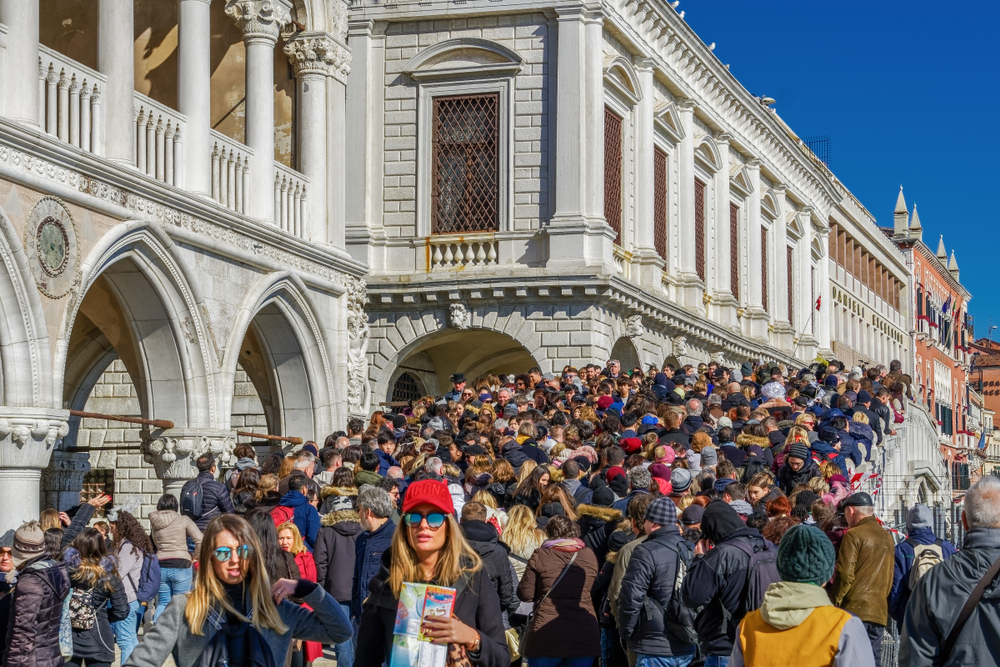Trend. Ten keys that will define our way of traveling in 2021
Ranking: The Spanish passport, among the five most powerful in the world
In several countries the forced halt
in mass tourism
caused by the covid-19 pandemic has sparked a debate about the negative impact of this model, but the income and jobs it generates make any change difficult.
In tourist destinations today abandoned by international visitors,
nature
has taken over the land.
At the site of
Machu Picchu
(Peru), the
spectacled bear
has been seen again
, after long disappeared.
In Thailand, where the number of foreign tourists fell by more than 83% last year, more and more marine animals such as
dugongs
, endangered turtles or
whale sharks
are being observed
.
To make it easier for flora and fauna to regenerate, the Thai government has decided to close, about three months a year, more than
150 national parks
and limit their access.
"Now we want
quality tourism
, we do not want a massive influx of tourists to our national parks," says Varawut Silpa-archa, Minister of the Environment.
To compensate for this loss of influx,
rates could be increased
.
It is "the price to pay" to protect nature, he adds.
Educate travelers
Also in Peru, access to Machu Picchu has been restricted and the authorities are studying how to implement a less massive and
more selective
type of tourism
.
According to Darwin Baca, mayor of Machu Picchu Pueblo, other offers are being developed, such as
guided visits
to natural spaces and waterfalls, to encourage tourists to extend their stay while they wait to be able to access the Inca site, which each year reports 38, 5 million dollars (31.7 million euros) to the country, according to official estimates.
The Inca citadel of Machu Picchu, in Peru.
Travelers must be "educated" to visit
lesser-known places
, or to come in low season, points out Jean-François Rial, general director of the Voyageurs du Monde agency.
Dubrovnik
, in Croatia, a destination that has become emblematic of mass tourism, hopes to disperse its travelers to other areas beyond the old city, literally taken over by tourists and cruise passengers.
It seeks to reposition itself "as a
destination of excellence
and sustainable tourism," explains Ana Hrnic, director of the tourism office.
The pandemic could be "an opportunity to move towards more responsible tourism" in the long term, says Damien Chaney, professor of marketing at EM Normandie.
"For radical solutions to emerge, in general there has to be an external shock, such as covid-19," he explains.
Furthermore, the interruption of tourism has shown how dependent some economies are on it.
In countries like
Tunisia
(or Spain, without going any further), tourism is responsible for up to 14% of GDP.
The island of Djerba, a very popular destination, saw 80% fewer visitors last year, a real catastrophe for jobs.
"All the parameters are in red," laments Hichem Mehouachi, regional commissioner for tourism on the Tunisian island.
Is tourism a drug?
In Barcelona, in places like the Gothic Quarter or the emblematic Las Ramblas promenade, most of the shops are closed or their owners see them and wish them to make ends meet without tourists.
"Here tourism has expelled a lot of local population and now that
tourists have also left
, there is nothing left," says Martí Cusó, a social worker who fights against mass tourism in the center of Barcelona.
In Italy, Guido Moltedo, founder of the Ytali portal, has launched a petition so that the
museums of Venice
do not continue to be closed and that a debate be opened on the future of the city, its tourism and its vision of culture.
The petition has collected 6,000 signatures.
"The city is on its knees and it shouldn't be like this," he commented, alarmed.
Tourists in Venice before the pandemic that emptied its streets.
But in Venice as well as in other tourist destinations,
sacrificing income from tourism
seems difficult.
"Even the smallest bar in this city earned 3,000 euros a day, the city is
drugged,
" denounced Moltedo.
Tourism is the main source of income for approximately 65% of its inhabitants.
"It is true that mass tourism has sometimes been a problem in Venice, but its
total disappearance
is worse," said Claudio Scarpa, director of the city's hotel association.
According to the criteria of The Trust Project
Know more
Barcelona
Peru
Tunisia
Thailand
Italy
Croatia
tourism
Covid 19
DiscoverFive destinations that defy the pandemic and open their borders to tourists
Spain also suspends its flights and the United Kingdom is isolated due to the new strain of coronavirus
Television'Madrileños por el Mundo 'returns adapted to the times of Covid-19
See links of interest
Coronavirus
CSKA Moscow - Barça
Spain - Brazil, live
FC Bayern Munich - Real Madrid
Valencia Basket - Red Star

